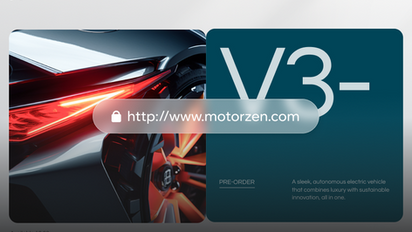Getting Started with Small Business Website Design
Small Business Website Design Best Practices
Small Business Website Design
Web developers play a crucial role in the digital age, as they are responsible for creating and maintaining websites that are essential to businesses and organizations. In today’s technology-driven world, having a strong online presence is essential for success, and web developers are the ones who make that possible. In this article, we will explore the role of a web developer, the skills required to be successful in this field, and the importance of web development in today’s society.

How to Master Small Business Website Design
Small Business Website Design
When it comes to choosing a website builder, cost is a major factor to consider. While some platforms can cost hundreds of dollars per month, there are also cheaper options available that provide all the essential tools needed to create a professional-looking website. In this article, we will discuss some of the cheapest website builders on the market and explore their features and pricing options.
Wix is one of the most popular and affordable website builders available today. With plans starting at just $14 per month, Wix offers a user-friendly interface and a wide range of customization options. Users can choose from hundreds of templates, add features such as e-commerce functionality and social media integration, and even create a mobile-friendly version of their site. Wix also offers a free plan that includes Wix branding on the site, making it a great option for those on a tight budget.
Another affordable website builder is Weebly, which offers plans starting at just $6 per month. Weebly is known for its easy-to-use drag-and-drop editor, which allows users to quickly create a professional-looking website without any coding knowledge. The platform also offers e-commerce functionality, SEO tools, and customizable templates. Weebly’s free plan includes Weebly branding on the site, but users can upgrade to a paid plan to remove this branding and access additional features.
Squarespace is another popular website builder that offers competitive pricing starting at $12 per month. Squarespace is known for its sleek and modern templates, which are perfect for creative professionals and artists. The platform also offers e-commerce functionality, SEO tools, and analytics to track website performance. Squarespace’s plans come with a free custom domain for the first year, making it a cost-effective option for those looking to establish a professional online presence.
WordPress is a versatile website builder that offers a free plan, making it one of the most affordable options available. Users can choose from thousands of free and premium themes, add plugins for additional functionality, and customize their site to suit their needs. WordPress is ideal for bloggers, small businesses, and e-commerce websites, as it offers a wide range of features and customization options. While WordPress does require users to purchase a domain and hosting separately, the platform itself is free to use.
When choosing a website builder, it’s important to consider your budget, as well as the features and functionality you need for your site. While some platforms may offer cheaper plans, they may lack certain features that are essential for your website. Before making a decision, be sure to compare different website builders and their pricing options to find the best fit for your needs.
Website builders are online tools that allow users to create their own websites without needing to know how to code or design. These platforms provide a user-friendly interface with drag-and-drop functionality, making it easy for anyone to create a professional-looking website quickly and affordably.
There are many website builders available on the market, each offering different features and pricing plans. Some popular website builders include Wix, Squarespace, Weebly, and WordPress. In this article, we will discuss the benefits of using a website builder and how to choose the right one for your needs.
Benefits of Using a Website Builder
1. Easy to use: Website builders are designed for users with little to no technical skills. The drag-and-drop interface makes it easy to customize the design and layout of your website without having to write a single line of code.
2. Cost-effective: Hiring a professional web designer can be expensive, especially for small businesses or individuals on a tight budget. Website builders offer affordable pricing plans that include hosting, domain registration, and customer support, making it a cost-effective option for creating a website.
3. Customizable templates: Website builders offer a wide range of pre-designed templates that you can customize to fit your brand and aesthetic. These templates are responsive, meaning they will automatically adjust to different screen sizes, ensuring your website looks great on any device.
4. Built-in features: Website builders come with built-in features such as e-commerce functionality, SEO tools, and analytics, making it easy to optimize your website for search engines and track visitor behavior. These features are essential for growing your online presence and reaching a wider audience.
5. Quick deployment: With a website builder, you can have your website up and running in a matter of hours, compared to hiring a web designer, which can take weeks or even months to complete. This quick deployment allows you to start promoting your products or services online sooner.
How to Choose the Right Website Builder
When choosing a website builder, it’s important to consider your specific needs and goals. Here are some factors to consider when selecting the right website builder for your project:
1. Ease of use: Look for a website builder with an intuitive interface and drag-and-drop functionality that makes it easy to customize your website without any technical skills.
2. Templates: Consider the variety and quality of templates offered by the website builder. Choose a platform that provides a range of professionally designed templates that you can customize to fit your brand.
3. Features: Look for built-in features such as e-commerce functionality, SEO tools, analytics, and social media integration that will help you optimize your website for search engines and reach a wider audience.
4. Pricing: Consider your budget and choose a website builder with pricing plans that fit your needs. Some website builders offer free plans with limited features, while others offer premium plans with additional benefits.
5. Support: Choose a website builder that offers customer support through live chat, email, or phone to help you troubleshoot any issues or questions you may have while building your website.

Small Business Website Design Challenges
Small Business Website Design
In conclusion, web design plays a crucial role in establishing a strong online presence and engaging with your target audience. By incorporating creative and innovative design ideas, you can make your website more visually appealing, user-friendly, and memorable. Whether it’s experimenting with minimalistic layouts, bold typography, interactive elements, or personalized features, there are countless ways to elevate your website and make it stand out from the competition. By staying updated on the latest web design trends and incorporating best practices, you can create a website that not only looks great but also delivers a seamless and enjoyable experience for visitors.


